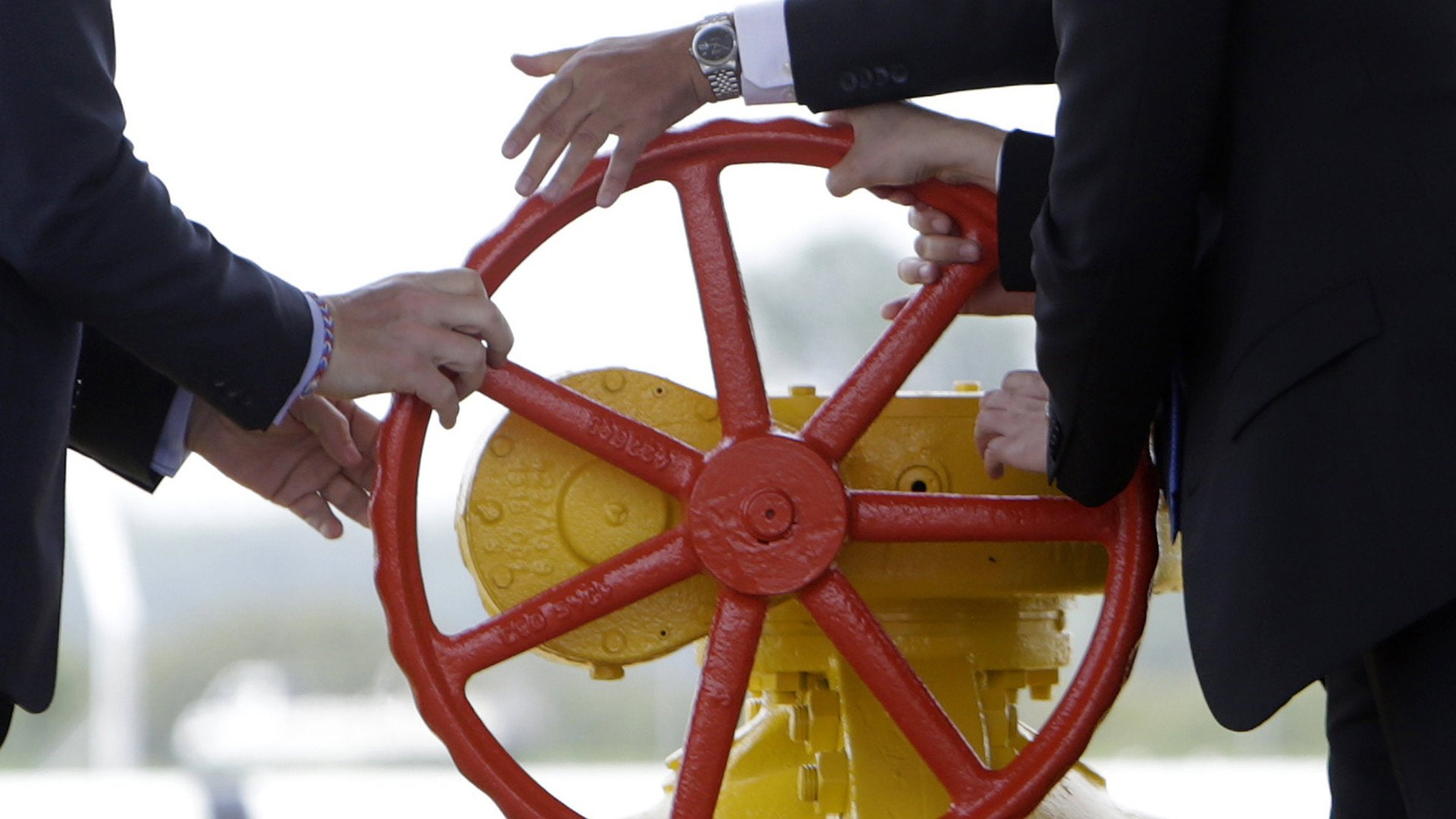The heat is on in the West’s proxy war with Moscow
No one knows where the brinksmanship between Russia and the West is going or will end. Brutal combat in Ukraine is the latest trigger-point, with increasing military, financial and diplomatic threats on both sides. Both Russia and the West seem cognizant that, like the edgiest moments of the Cold War, miscalculation is the greatest peril—the danger that one side will inadvertently escalate the crisis, triggering a spiral of reprisals. Yet they are pushing nonetheless.


No one knows where the brinksmanship between Russia and the West is going or will end. Brutal combat in Ukraine is the latest trigger-point, with increasing military, financial and diplomatic threats on both sides. Both Russia and the West seem cognizant that, like the edgiest moments of the Cold War, miscalculation is the greatest peril—the danger that one side will inadvertently escalate the crisis, triggering a spiral of reprisals. Yet they are pushing nonetheless.
Russian president Vladimir Putin resembles the reluctant pugilist pleading for someone to save society from himself—urging Kyiv to stop resisting Russian-backed forces in eastern Ukraine and instead to let these regions become all-but independent. He keeps making menacing off-mic remarks that his aides then walk back—telling Jose Manuel Barroso, the president of the EU, that if he really wants to invade Ukraine, he will capture Kiev in two weeks; and insisting on talks on statehood for eastern Ukraine.
The conflicted West seems increasingly determined to push back, fearing that a lack of response will be the greatest miscalculation of all, emboldening Putin to threaten NATO members. Unlike earlier skirmishes since the Ukraine crisis began five months ago, the West will probably approve limited military action against Russia this week. In a meeting in Wales, NATO seems likely to create a rapid-speed combat force numbering 4,000 troops to react in case of a Russian threat to eastern European NATO members.
It’s a step short of the bolder move urged by senior US and European statesmen: to arm Ukraine. In a note today to clients, Eurasia Group’s Mujtaba Rahman said that Germany and France will probably block a direct flow of NATO weapons to Ukraine. “German history and public opinion make an intervention of this type on Europe’s doorstep unthinkable,” Rahman wrote.
Yet step-by-step, Europe—and in particular Germany—is less and less hesitant about taking on Putin. That’s partly because of the Russian military’s brazen and bloody direct intervention, including last week’s massacre—reportedly by separatists backed by Russian troops and armor—of retreating Ukrainian forces outside the town of Illovaisk. This resulted in an unhappy response today from Moscow, which said that NATO is “aggravating tensions with Russia” and that Russia will respond.
More oil penalties are next
The West is unlikely—at this stage at least—to cut off Russia from the SWIFT international payments system, the action that many think brought Iran to the negotiating table. The reason appears again to be the danger of unintended consequences—that Russia and perhaps others such as China might simply co-conspire and create an alternative to SWIFT.
Oil is arguably as potent a weapon as SWIFT when it comes to Russia. As a key step this week, the US and possibly also Europe appear poised to aim new sanctions at Russia’s next-generation (paywall) oil- and gas-production ambitions. The idea is to further restrict the export of equipment critical for difficult oil wells and liquefied natural gas (LNG) facilities, moves that would hobble production that Moscow hopes to bring on line after 2020, when Putin may still be serving. Oil and gas exports pay for half the Russian state budget.
Russia claims that if it cannot obtain oilfield equipment from the West, it will simply buy it from China or South Korea. Oil super-majors fear punishment by Putin if he continues to feel pressured about oil. In an age when large oil reserves are harder than ever to find, it’s a danger about which super-majors have been urgently warning Western governments as they consider more sanctions. But as of now, the US makes the most advanced technology for shale, deepwater and LNG development, giving the West the advantage in terms of oil leverage.
For now, ExxonMobil, which is carrying out some of the most crucial work in the Russian Arctic and the Bazhenov onshore field, seems inoculated from penalties because its contracts pre-date the sanctions. It’s the next stages of work that some analysts suspect will complicate Putin’s Ukraine strategy. In response to a query from Quartz, ExxonMobil said, “We are continuing to assess the sanctions and will comply.”